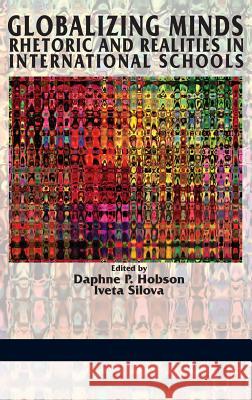Globalizing Minds: Rhetoric and Realities in International Schools (Hc) » książka
Globalizing Minds: Rhetoric and Realities in International Schools (Hc)
ISBN-13: 9781623965877 / Angielski / Twarda / 2014 / 344 str.
Globalization has a profound effect on the mission and goals of education worldwide. One of its most visible manifestations is the worldwide endorsement of the idea of ai??education for global citizenshipai?? which has been enthusiastically supported by national governments politicians and policy-makers across different nations. Increasingly the educational institutions feel under pressure to respond to globalization forces by preparing students to engage competitively and successfully with this new realm lest their nations be left in the dust. What is the role of international schools in implementing the idea of ai??education for global citizenshipai??? How do these schools create a culturally unbiased global curriculum when the adopted models have been developed by Western societies and at the very least are replete with (Western) cultural values traditions and biases?
This collection of essays attempts to grapple with these complex issues while highlighting that culture and politics closely intertwine with schooling and curriculum as parents administrators teachers and students of different backgrounds and interests negotiate definitions of self and each other to construct knowledge in particular contexts. The goal is to examine the complexity of factors that drive the global demand for ai??education for global citizenshipai?? and de-construct the contested nature of ai??global citizenshipai?? by examining how the phenomenon is understood interpreted and modified in different cultural settings. The authors provide not only a thick description of their cases but also a critical assessment of various attempts to initiate and implement educational reforms aimed at the development of globally-minded citizens in various national settings.











